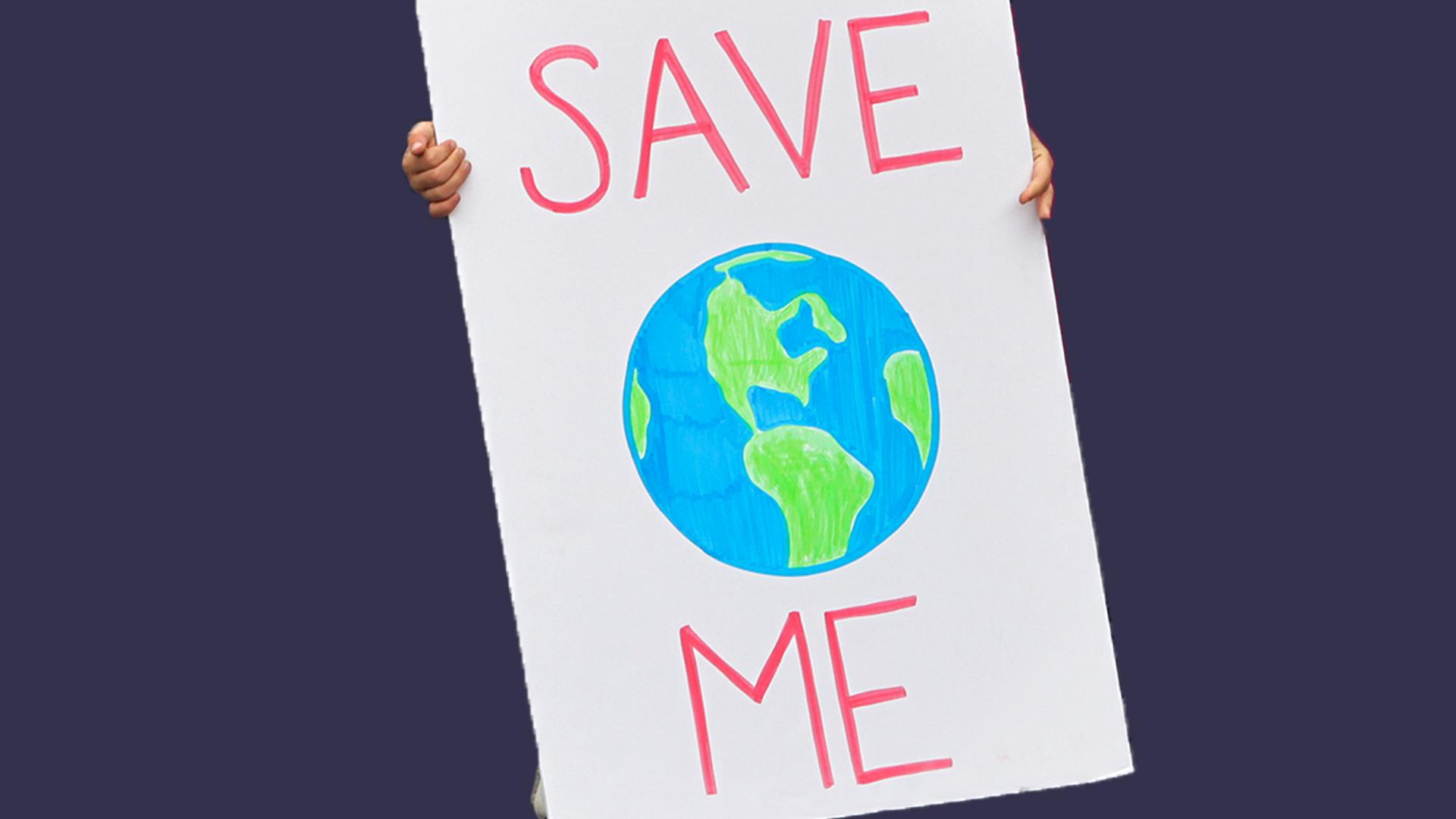Climate Change: What is COP26, and why is it happening in Glasgow in 2021?
- Published

Prime Minister Boris Johnson had pledged that 2020 would be the "defining year of climate action" when he joined Sir David Attenborough to launch the next United Nations climate change conference.
The COP26 event is a global united Nations summit about climate change and how countries are planning to tackle it.
It was due to take place in Glasgow from 9 - 19 November with more than 200 world leaders due to attend, but when coronavirus arrived, that all changed.
Cop26 was moved to 1 and 12 November 2021 but it will still take place in Glasgow.
So what is COP26 all about? Keep reading to find out.
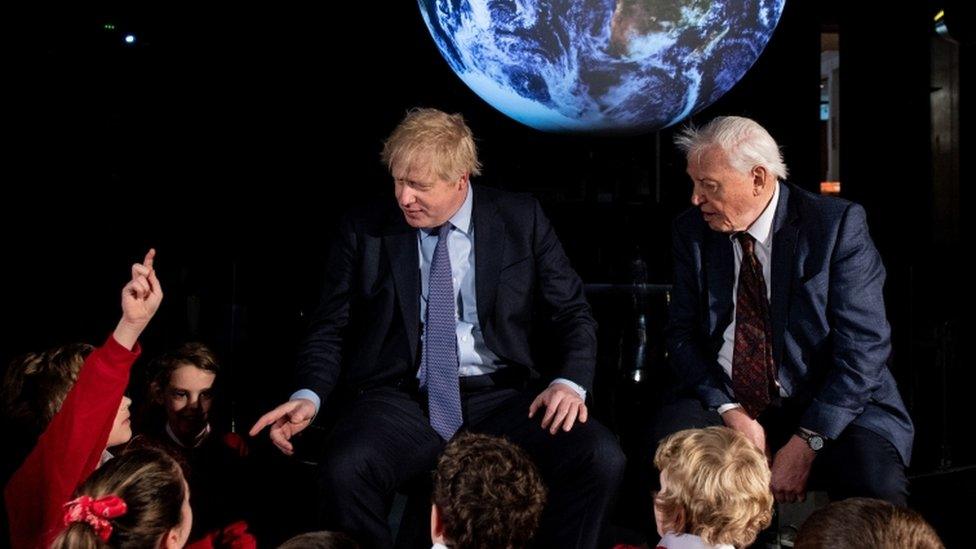
Boris Johnson and Sir David Attenborough launched the UK hosting of the COP26 UN summit
What is COP 26 and what does COP stand for?
COP stands for Conference of the Parties, and will be attended by countries that signed the United Nations Framework Convention on Climate Change (UNFCCC) - a treaty agreed in 1994.
The 2021 meeting will be the 26th meeting, which is why it's called COP26.
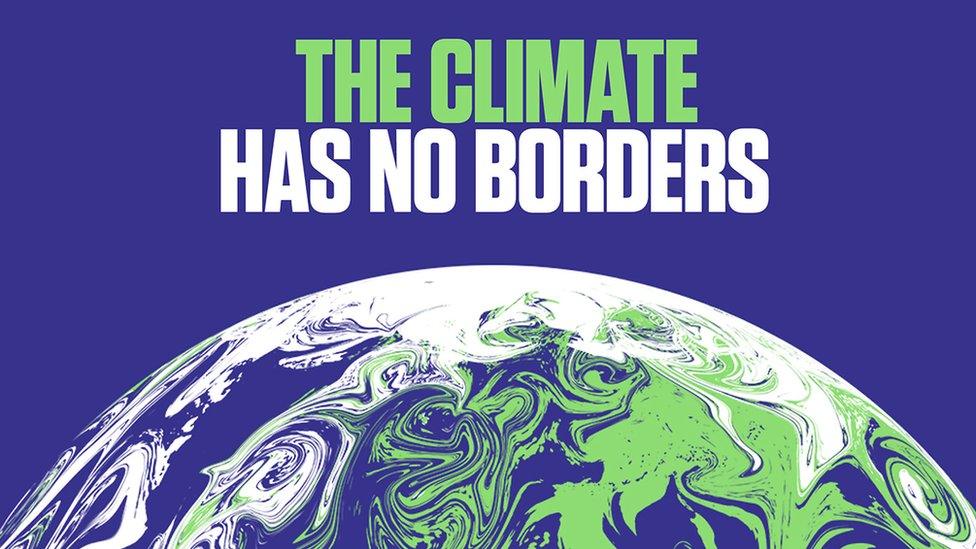
This COP26 campaign poster stresses the fact that countries need to work together to fight climate change
The last conference, COP25, was held in Madrid, Spain, in November 2019 with Greta Thunberg giving a big speech at the event.
The COP meeting in Madrid finished with lots of big issues unresolved, but an agreement was made about cutting carbon dioxide - a gas that causes global warming.
Each nation agreed to devise a plan to cut their carbon emissions by the next conference in Glasgow.
WATCH: De'Graft has all you need to know about COP 25 in 60 Seconds
At the heart of discussions over the last few years has been the Paris "rulebook".
The Paris Agreement is a big international agreement to tackle climate change, which was agreed by leaders back in 2015 when 195 countries attended COP21 in Paris.
It says nations must:
• Reduce the amount of harmful greenhouse gasses produced and increase renewable types of energy like wind, solar and wave power
• Keep global temperature increase "well below" 2C (3.6F) and to try to limit it to 1.5C
• Review progress made on the agreement every five years
• Spend $100 billion dollars a year in climate finance to help poorer countries by 2020, with a commitment to further finance in the future.
However, in 2020 the United States officially pulled out of the deal - although President-elect Joe Biden may rejoin - and there is still lots of debate about exactly how the agreed goals should be achieved.
What can we expect from COP26?
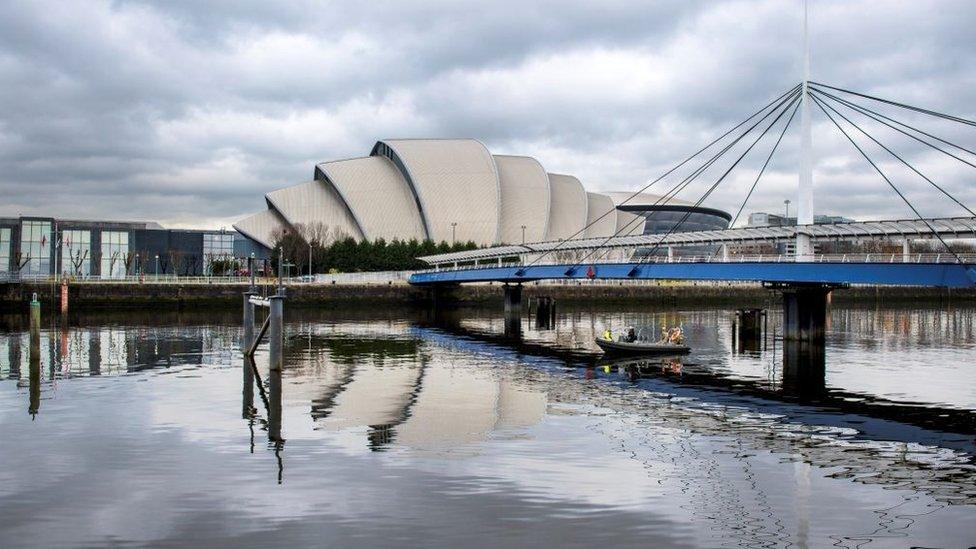
The COP26 event will be held at the SEE Hydro in Glasgow
COP26 will be biggest summit the UK has ever hosted. It is being described as the most significant climate event since the 2015 Paris Agreement.
Presidents and prime ministers from around the world will be reporting back on progress since the Paris Agreement and, hopefully, there will be some new decisions on how to cut carbon emissions.
What is the UK doing about climate change?
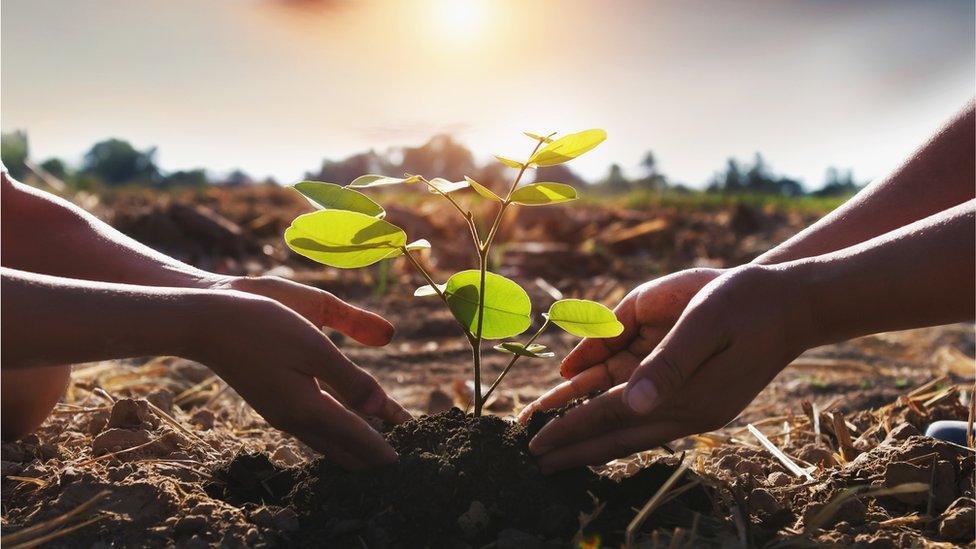
The UK government declared 2020 a "Year of Climate Action".
As well as the targets for changing to electric cars, the government has pledged to reduce the UK's carbon emissions to "net zero" - which means releasing virtually no carbon - by 2050.
This means emissions from areas like transport, farming and industry will have to be avoided completely or offset by sucking CO2 out of the atmosphere.
The warming of Earth happens because the atmosphere traps heat radiating from the world and stops it escaping into space.
Certain gases in the atmosphere, called greenhouse gases, block the heat from escaping. One of the biggest problems is carbon dioxide (CO2).
Carbon dioxide is released naturally but humans have increased CO2 in the atmosphere by more than a third by burning fossil fuels like coal and oil.
This isn't technically Prime Minister Boris Johnson's idea - he inherited the pledge from the former prime minister Theresa May, who put the commitment into law in June last year.
But Mr Johnson has said he wanted fighting climate change to be one of his government's biggest priorities and he has made a series of announcements around renewable energy, national parks and protecting the environment.
Have previous COP events made an impact?
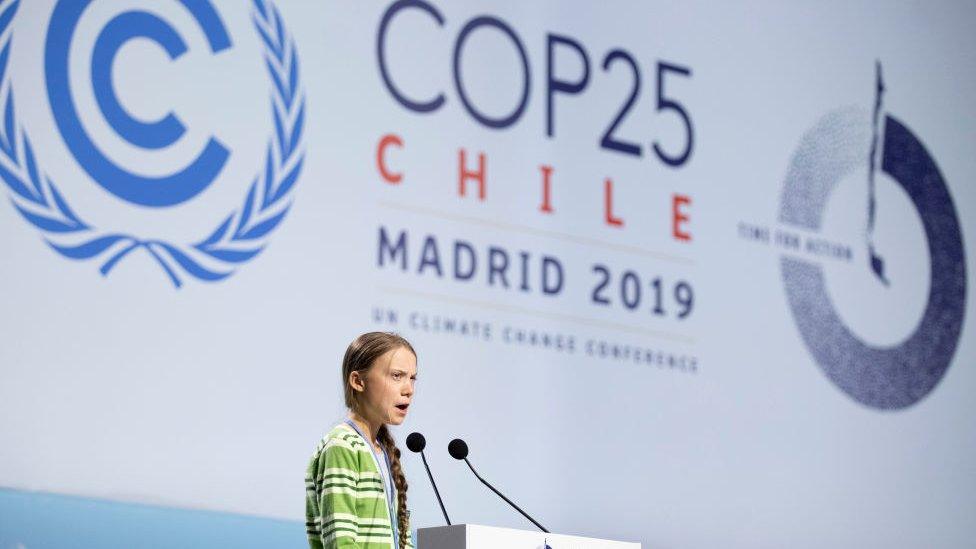
COP 25: The conference in Madrid became the longest on record, finishing almost two days later than planned, after more than two weeks of tense negotiations.
It was hoped the conference would show that world leaders were aware of how much needed to be done.
Instead, the main focus ended up being climate activist Greta Thunberg, who arrived from her transatlantic journey by sailing boat just in time to join the event.
There were also big protests by young people - angry at the lack of progress being made by leaders to fight climate change - in the Spanish capital.
Watch: What Greta said to world leaders at COP25 in Madrid
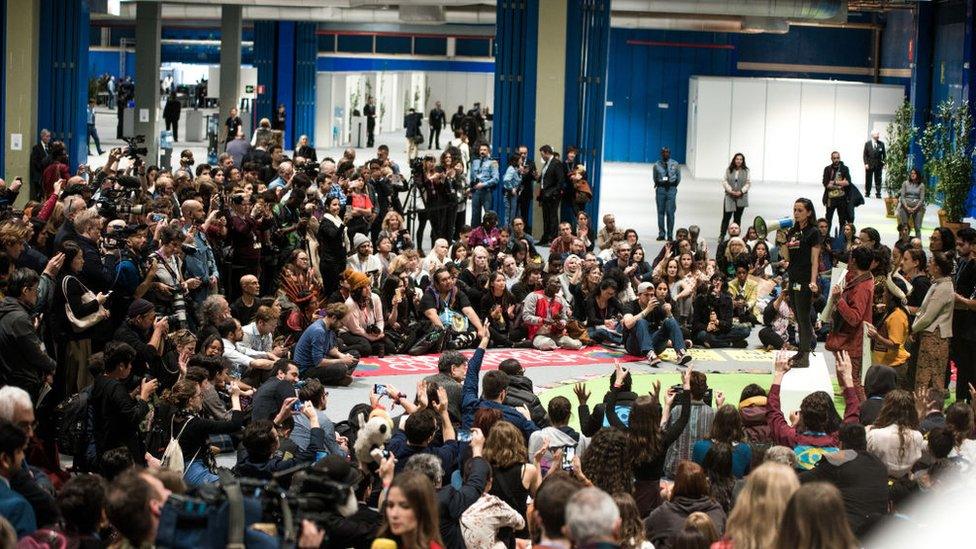
Despite the discussions, countries couldn't agree on areas like offsetting carbon and financial aid for developing nations. These topics will be discussed again at next year's conference.
The UN Secretary General, Antonio Guterres, said he felt "disappointed" by how little was actually achieved at COP25, and others called the conference a failure.
COP 24:
After lots of discussion at the conference in Poland, an agreement for a new international climate regime was reached.
The agreement set out that each country must report their emissions every two years, and demonstrate they had taken steps to cut them - but this new regime doesn't begin until 2024.
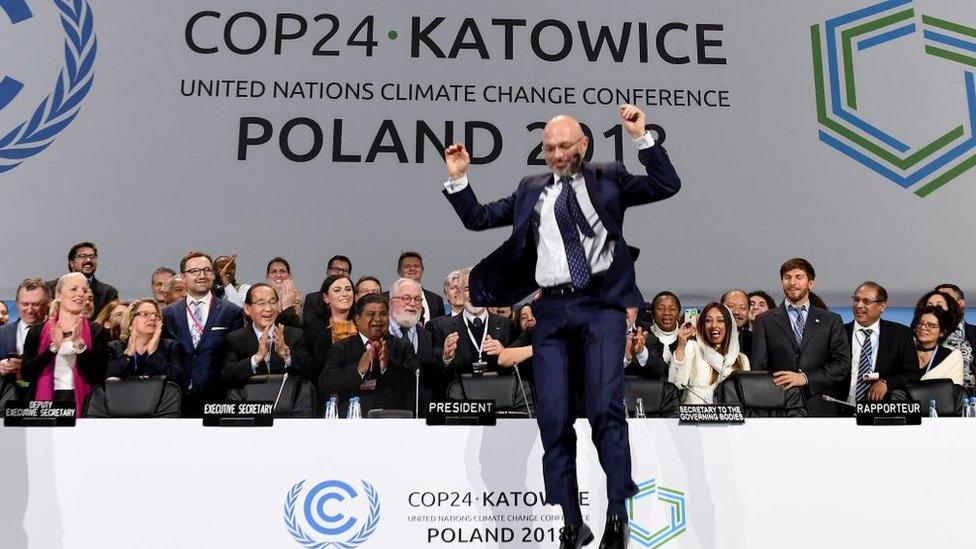
COP24 president Michal Kurtyka jumped for joy at the end of the final session of the COP24 summit on climate change in Katowice as the deal was reached
Even as COP24 came to an end, there were calls for more ambitious climate pledges before COP26
That, alongside new research released at the COP showing global emissions going up, not down, left many disappointed at the lack of progress.
If you cannot see the interactive activity on this page, click here.
- Published2 January 2020
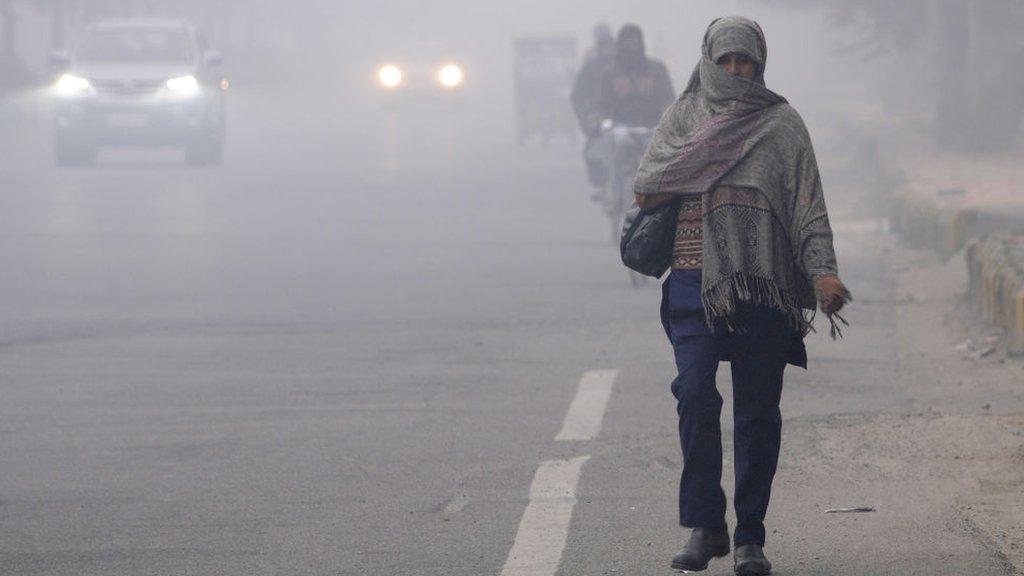
- Published11 December 2019
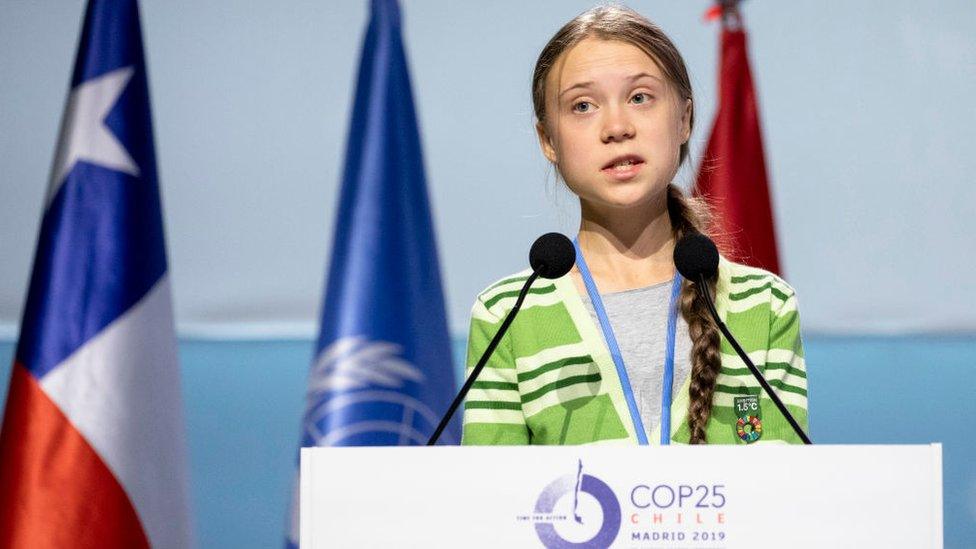
- Published17 October 2018
